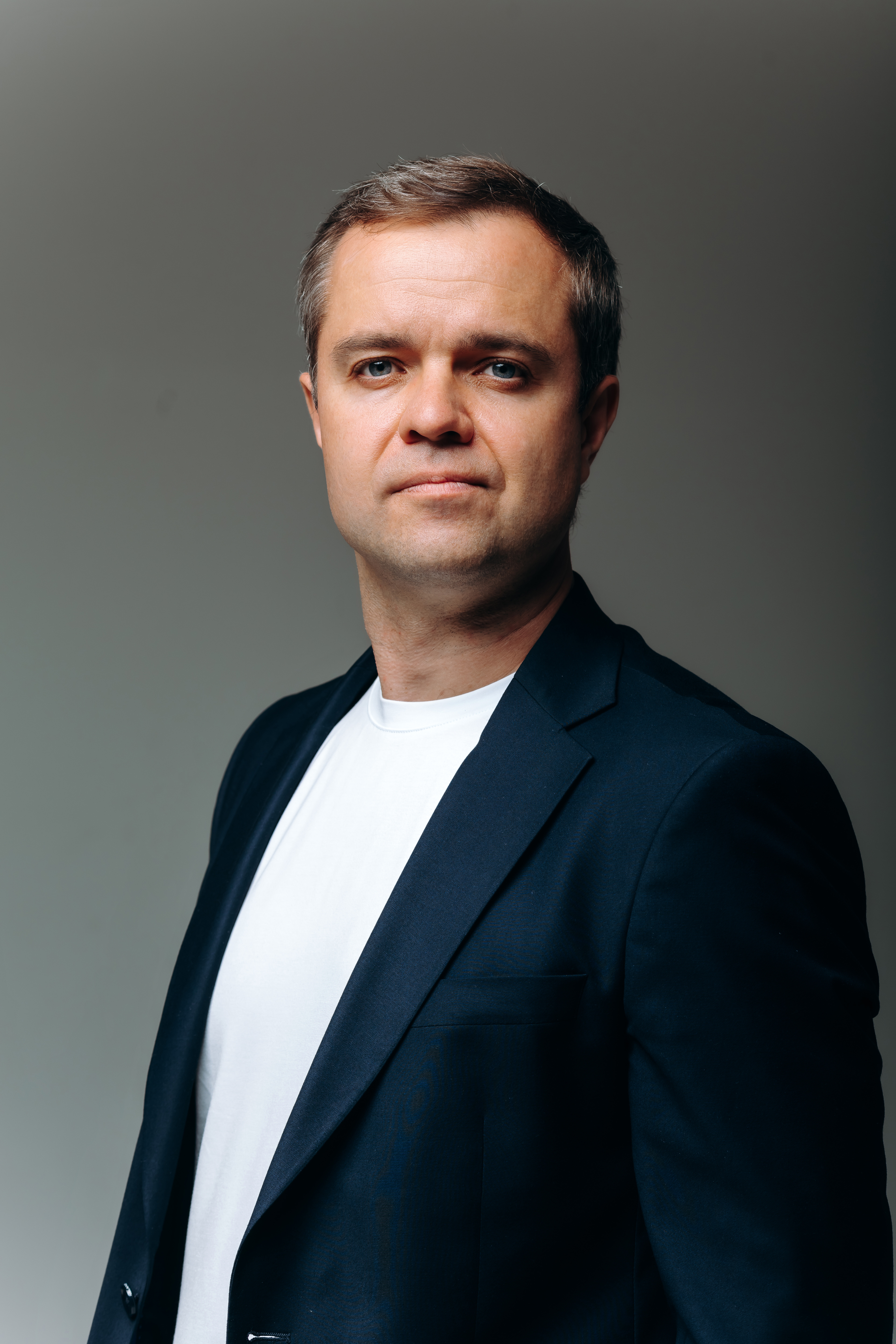To get a legal advice
Get book
Thank you for the application.
To get a legal advice
If you negotiate, then only transparently: the working principles of Dmitry Malinin

Photo: Igor Boltivets
The work of lawyers, in general, legal activity is, of course, a sacred ceremony. This is the case when from knowledge, practically from pure reason, not just truth is born, justice is born. Lawyers will object and say that it is also from practice ... I will not dare to object. In order to somehow feel this atmosphere, the correspondent of NIA-Kuzbass ventured to ask Dmitri Aleksandrovich Malinin Kemerovo) several, possibly amateurish questions.
— Dmitry, how did you decide to become a lawyer and why such a choice?
“This is a story from childhood. Comrades' courts were practiced in the class. We did these at school. The punishment was different: from schelbans to more serious measures. And then one day I was called to court. The accusation was especially serious. The class believed that I had usurped relationships with the fair sex at the age of 12. Yes, I went to the girls for home economics lessons, in general, I talked with them more often. What to do? Defend yourself!
I had to develop a line of defense: I did not usurp communication with classmates, and if the guys want, I am ready to help everyone in building relationships with young ladies. So, I avoided the "retribution" and realized that the humanities are for me.
Then there was the historical and legal class of the Classical Lyceum, a victory in the regional Olympiad in history, admission to the law faculty of the KemSU, participation in various student activities.
It was then, at my 18 years old, that we organized the non-profit organization "Actual Projects", from which, in fact, the current "Yurproekt" has grown.
— In what areas does your company specialize today? Who are your services for?
Initially, it seemed important to us that our services be simple and accessible to the most novice entrepreneurs. It's like McDonald's. Not always novelties, not always some kind of exclusive, but there will be no unpleasant surprises either. Everything is clear, everything is logical. therefore, a significant share was occupied by registration services. There was such a project "Firmodel": "if you want a company, contact "Firmodel", if you are tired of the company, you are back to "Firmodel".
For 10 years, together with our clients and their projects, we have grown. Today we have three key areas of work. And they are all related to the business audience.
The main direction of the company's work is business support in land and property matters, including real estate transactions, taxation and rental payments for land and real estate, as well as asset protection.
A dynamically developing direction - the so-called "anti-crisis practice" - tax disputes, corporate conflicts (between business partners) and bankruptcy (the key emphasis now is on protecting former managers and owners of companies from subsidiary liability).
The third direction is business support in matters of ordinary economic activity (legal analysis for making managerial decisions, development of contracts and legal regulation of business processes, disputes over debts and inadequate quality of goods, services, protection against claims from government agencies, and so on).
Despite the location of the office in the MFC building, we have almost completely ruled out working with individuals on such matters as family and housing disputes. Our segment is small and medium (rarely - large) business.
How many people work in the college? Tell me about these people...
— What is the main thing for you in your profession, what are the main values? Is there something you would never do?Now 12 people work in Yurproekt, these are lawyers, lawyers and administrative and technical staff, almost all of them work in Kemerovo.
Among them is my permanent (for more than 15 years!) companion - Denis Smotrin, the head of the very anti-crisis practice - taxes , bankruptcy, corporate conflicts. Denis is both an economist and a lawyer. At one time, he spent a lot of effort on writing a Ph.D. thesis in economics, and now he applies the acquired skills in developing a strategy for protecting directors from property liability in bankruptcy cases and in substantiating tax benefits in disputes with the tax service.
Photo: Igor BoltivetsThe core of the team is our senior lawyers Evgeny Georginsky and Yana Alexandrova These are experienced specialists and wonderful people. Eugene is engaged, as it is commonly called in modern law firms, in practice and "dispute resolution". That is, basically - judicial practice in arbitration cases (economic, corporate, bankruptcy disputes and disputes over property rights). Yana leads complex land and property projects: protecting real estate from seizure, reducing payments for land, registering land rights for the construction of linear and other facilities.
Attorney Daria Tretyakova has been dealing with our clients in Moscow for several years. It is very convenient for us when there is a strong specialist to work in the Arbitration Court of Moscow and in the highest judicial instances. Daria improved her qualifications at the Russian School of Private Law, now she is not just a lawyer, but a Master of Private Law.
Daria is also the author of the book Cadastral Value and Mandatory Payments for Land and Real Estate. This is a kind of generalization of the practice of "Yurproekt" for 6 years of work. Daria was offered to publish the book by a Moscow publishing house. A few months later, we decided to publish a deluxe version of the book in 100 copies. It can be ordered at Jurproject website .
Photo: Igor Boltivets
A very important point: we respect our clients and fundamentally do not promise them a “solution of the issue” by agreement with a judge / official for money. All our work "from" and "to" is based on maximum publicity and transparency. Those of our colleagues who promise such a solution rarely actually keep their promises. The principle of the lottery works: they won the case - because they "resolved the issue", lost - something went wrong (otherworldly forces intervened, and so on).
Our reputation, the reputation of Yurproekt, is important to us. There were examples when people came who wanted to issue rights to someone else's land or real estate on the basis of false documents. We refuse such people, because those who are unscrupulous in trifles will one day deceive the lawyer who undertook to help them.
There are those who like to involve lawyers in order to harm a neighbor or a former partner in life or business. We also try not to get involved with such tasks. Resolving a conflict is one thing, helping to harm out of a sense of revenge is a completely different story, alien to us. An important point for us is the understanding that a lawyer is not only a professional who wins important litigations. He should be, first of all, a mediator who seeks to resolve the conflict without trial, reducing the time and reducing the costs and worries of the client for the dispute.
First, we try to resolve the case without resorting to litigation: invite colleagues from the other side, rise above the situation, listen to both sides and come to a compromise. This, as a rule, requires the preparation of payment schedules, "road maps", agreements on the settlement of mutual claims and settlement agreements (rarely, when this is one document: usually a separate agreement or contract is required for each group of issues between the parties), the signing of such documents, which give guarantees of conscientious fulfillment of the obligations assumed, restore the "status quo". There are plenty of tools for dialogue.&
It happens that one of the parties cannot open “all the cards” of their activity or their interest, then such communication, if it occurs, is most often doomed to failure. If you negotiate, then only transparently.
We must be ready for mutual concessions, and most importantly, to hear the other side. And another important point is to fulfill the agreements. To all parties. If we agreed, for example, to send a road map, other schemes, documents, everything must be done accurately and on time. We, as negotiators, monitor our clients' compliance with such formalities.
Dmitry, tell us about some interesting cases that seemed hopeless to everyone, but you managed to change the situation. In general, are hopeless cases not a format for you or do you take them to work?

Photo: Igor Boltivets
The first thing I will say is that you need to work with the client's expectations. After all, in the course of doing business, new details are revealed, the position of other participants in the process is changing. The first stage of work on such cases is preparatory and analytical work. We interview the client, send lawyer requests, analyze the information and prepare a legal opinion.
It is necessary and important that the customer, thanks to the lawyer, clearly understands the strategy hyu defense / attack and options for the development of events. Together with the client, we determine what can work and what does not. Well, in case of failure, which "ambush regiment" can be sent to the enemy's camp.
There is an example of such a “lost case” in our practice. The consumer of electricity did not want to pay for its transit through the owner's networks. The network operator suffered losses for transit, the cost of an electrician and repair of cable lines, and paid taxes. And the consumer refused to pay and also demanded the return of the "overpayment" for the previous period. We approached from the point of view of not energy, but civil law. There is a rule in the Civil Code: if you signed a contract, recognized it, you do not have the right to violate it. This is estoppel. The court supported us, despite the fact that in most cases the courts took the opposite side. Plus, we found something to "hit the rear" of the enemy - we offered the counterparty to terminate the contract for transit and made a calculation of non-contractual consumption. The amount turned out to be cosmically higher! This approach deterred our client's opponent from further litigation and encouraged us to sign an agreement to settle all disputes.
Who doesn't do things like this? These are “never-losing” lawyers. To maintain their "stardom" they only do obvious things. And in the case when the case is with an unclear prospect, they refuse the customer so as not to spoil their reputation.
- Without defeats there are no victories?
By the way, a case illustrating this expression was in our law practice. The supplier company did not provide an invoice when handing over the furniture; accordingly, the buyer took the furniture and did not sign any documents on receipt. And then he demanded a penalty for the delay in the delivery of this product. We understood that after that he would still be able to demand a refund of the advance payment for the goods and naturally would not want to pay the rest of the price.
It became clear: if we file a counterclaim, they will say: there was no delivery of furniture at all. Therefore, the situation is terrible and the penalty will have to be paid. We are deliberately losing the case, while in all the reviews we indicate that the goods were delivered at such and such a time. Plaintiff did not consider it necessary to refute these arguments. And these our theses got into the motivational part of the decisions of the courts of the first and appellate instances.
As soon as the decision took effect, we filed a claim for the recovery of the balance under the contract. And this very balance exceeds the amount lost by us on the collection of fines, and a real weighty victory came out of the first defeat.
— Advice to readers of NIA-Kuzbass on choosing a lawyer, on interacting with him?
The main advice: you need to choose a lawyer who is really passionate about his business. It is important to choose not only cool professionals, but also decent people. They will be honest with you. And they will always keep their word!
- Thank you so much for your replies!
Source: NIA-Kuzbass






